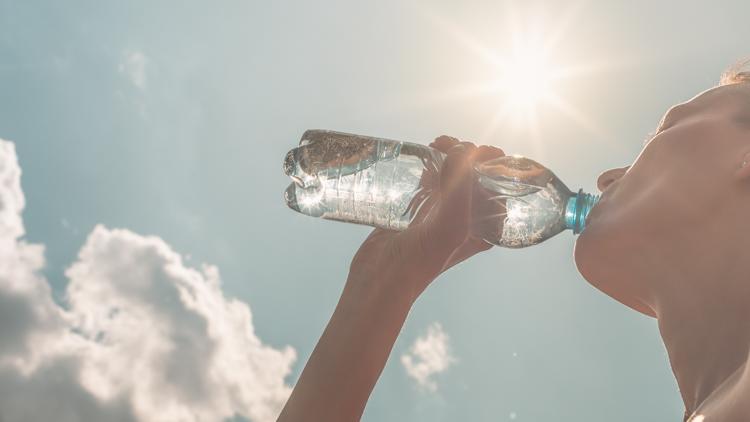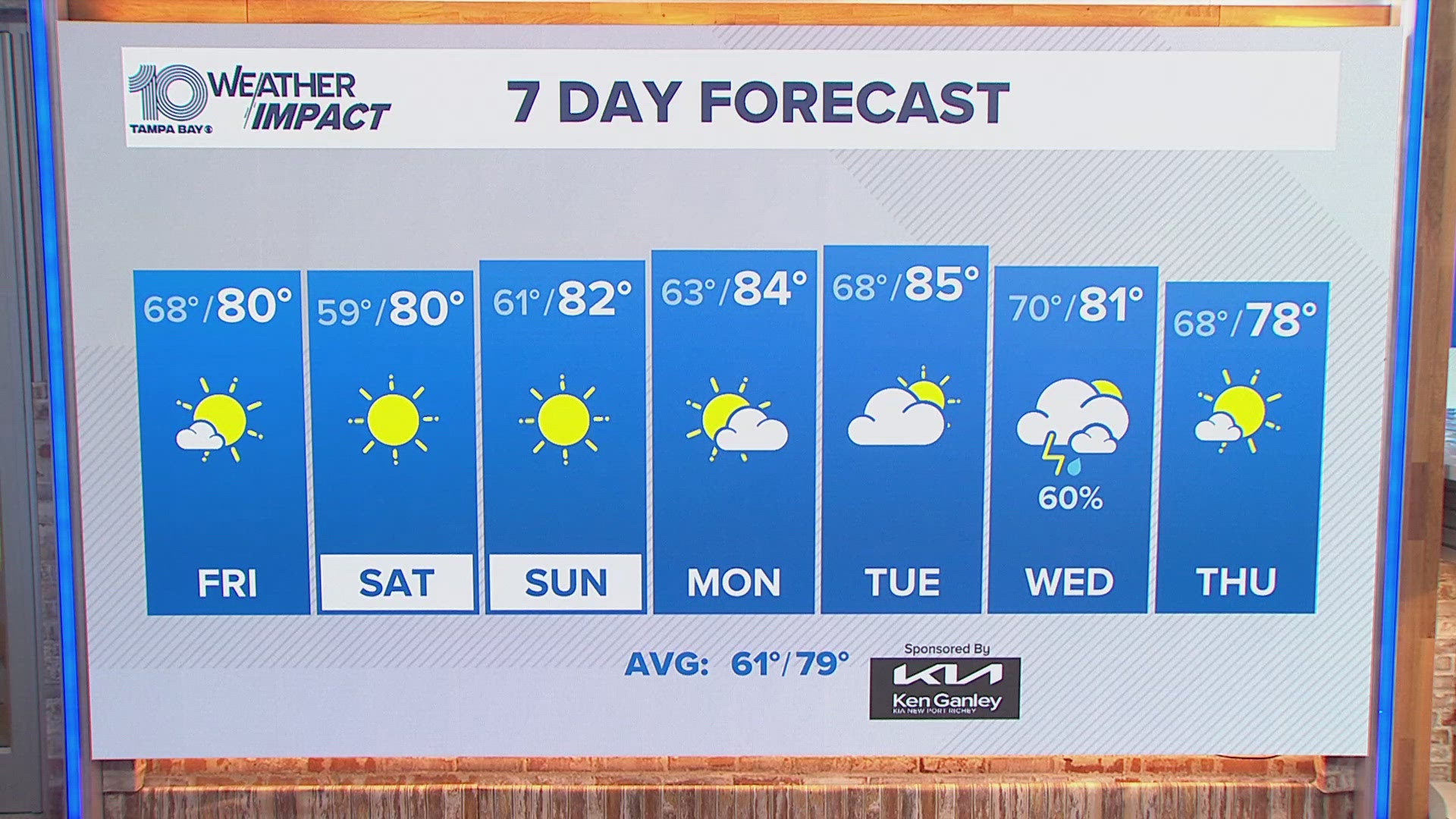TAMPA, Fla. — As Florida summer temperatures continue to rise, staying cool becomes more difficult — sometimes, the air conditioning doesn't cut it.
Tampa is an urban hot spot, meaning it is absorbed more easily and stays for longer. This makes cooling off more difficult.
Heat can become dangerous, especially for older adults, low-income communities, children, people experiencing homelessness and communities of color living in risk-prone areas, among others.
Here are some steps you can take to keep yourself and others safe during heat waves.
Find other places to stay cool
When at-home AC is inaccessible, alternate places to cool down like libraries, museums and shopping malls, are open to the public and can offer heat relief.
Community cooling centers also support the area when air conditioning for people experiencing homelessness or other people needing relief. Those spots can be found by contacting the Crisis Center of Tampa Bay.
If you're not able to access someplace cool, FEMA says to use cool cloths or freeze a wet t-shirt to wear around your neck.
Cool off in water
Find heat relief in a pool, lake, ocean or even a cold bath at home.
When children are involved in water activities, be sure to supervise and educate them. Florida now works with voucher programs to offer free or discounted kids swimming lessons across the state.
Cool your house with low-cost methods
FEMA reports that windows can cause 40% of unwanted heat buildups in homes. To cool down your house without breaking the electrical bill, you can:
- Add curtains to your window
- Limit heat-producing appliances, like candles, flat irons, etc.
- Open windows at night when temperatures drop
- Check the weather stripping on doors and windows so the cool air doesn't escape
- Use ceiling fans to help circulate air, but don't rely on them as a source of cooling, as it doesn't reduce body temperature or prevent heat-related illness
- Place ice buckets in front of fans to cool the circulating air
Switch up your clothing
Lightweight and light-colored clothing will absorb less heat and give your body more ventilation without trapping air. Loose-fitting outfits allow for air to freely pass through clothing, cooling stagnant heat.
Avoid heat-related illnesses
Symptoms of heat stroke include high body temperatures (above 103 degrees Fahrenheit), red, dry skin with no sweat, rapid pulse and dizziness or confusion, according to FEMA.
Heat exhaustion symptoms include heavy sweating, paleness, muscle cramps, tiredness, fast or weak pulse and nausea or vomiting.
To avoid heat-related illnesses, drink lots of water and sports drinks with electrolytes, and find a location to cool down. Remove excess clothing to allow more free flow of air. Call a healthcare provider if you're experiencing heat exhaustion, and call 911 if you or another person are experiencing heat stroke.



